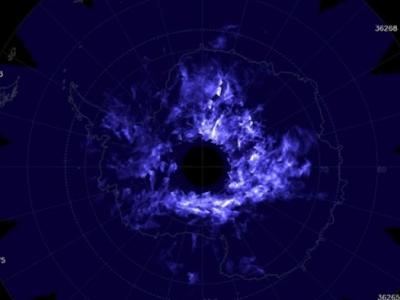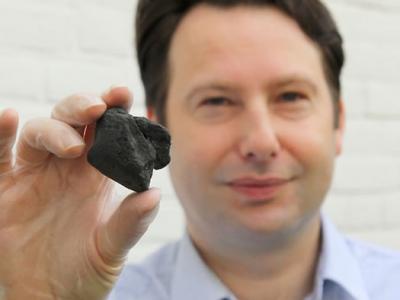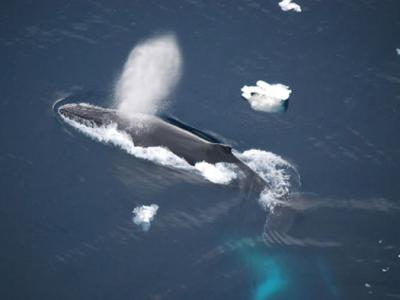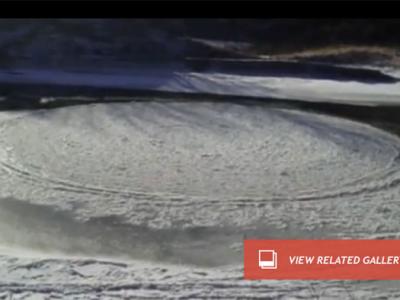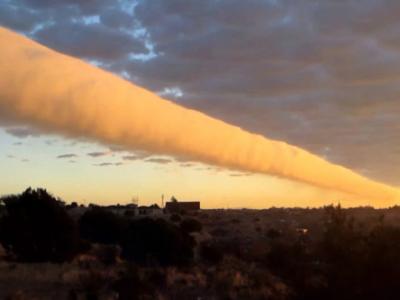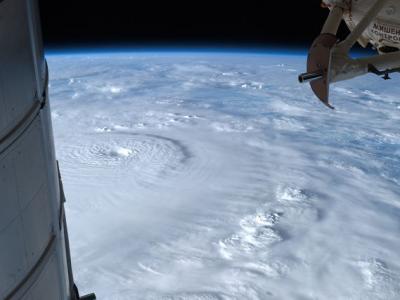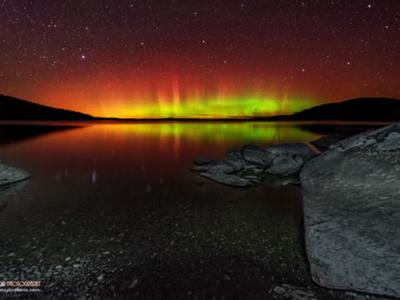Climate Change Awareness Promotes Peace
During President Barack Obama's recent trip to Israel, he spoke of the need for peace between Jews and Arabs. Centuries of bitter animosity and bloodshed divide those two groups, but psychologists suggest raising awareness of climate change may help bring peace to the eastern shore of the Mediterranean and elsewhere.
Climate change poses a threat to the entire planet, Israelis and Palestinians included. Awareness of that shared menace can increase support for peaceful coexistence, according to Tom Pyszczynski, professor of psychology at the University of Colorado, Colorado Springs.
During the January 2009 Israeli invasion of Gaza, Pyszczynski led a study in which Arab citizens of Israel were asked to imagine the planetary peril posed by climate change. They were also asked to imagine a local disaster that affected both Muslims and Jews. When they imagined a humanity-wide disaster, the Arabs' support for peaceful coexistence with Israelis increased. However, imagining only a local disaster did not increase the peace.
Variations of this study were conducted in the United States. Imagining disastrous climate change consequences led to increased support for international peace-building and decreased support for war against Iran.
Pro-Kurdish demonstrators in a file photo attend a gathering to celebrate the spring festival of Newroz in Diyarbakir, southeastern Turkey.
“Our work suggests that it would be helpful for leaders to emphasize that everyone will be affected if the climate continues to change,” Pyszczynski told DNews. “And that everyone is responsible for doing what they can to make things better, which will likely require that we all cooperate.”
Indeed, if climate change isn't seen as a common enemy, a warmer world could make existing rivalries worse. Fluctuating temperatures and rainfall patterns, like those forecast for Israel, seem to have stirred the coals of war and political turmoil in both recent and ancient history.
“Note that our studies focus on the effects of considering the global consequences of climate change before it produces catastrophic consequences and reduces resources,” said Pyszczynski. “It seems likely to me that actual changes would indeed produce the sort of scarcity that increases conflict.”
Those climatic changes may be particularly ferocious in arid regions, such as Israel. By 2100, Israel's average temperature is forecast to increase by 1.6 to 1.8 degrees C (2.88 to 3.24 F), while rainfall is expected to decrease by four to eight percent, according to a study by ecologists at Ben-Gurion University of the Negev. Coastal erosion may become worse, threatening low-lying regions and archeological sites.
“In the case of Israel and Palestine, where adherents on each side believe they are entitled to sacred land, they (national leaders) might find it effective to raise the prospect that these disputed sacred lands will be submerged under water if they don't set aside their differences and work to curtail the warming global climate,” Matt Motyl, one of Pyszczynski co-authors and doctoral candidate at the University of Virgina, told DNews.
“A growing body of evidence suggests that some climatic events have influenced violent conflict,” Solomon M. Hsiang, postdoctoral research fellow at Princeton University, told DNews. “However, people don't necessarily realize they are fighting over a climate issue... Underlying risk factors can be exacerbated by the climate.”
Hsiang compared the social situation during a climatic shock to driving on an icy road. More wrecks occur on an ice-slick road because small errors quickly become big disasters. The margin of error decreased due to the climatic conditions. Similarly, angry citizens may overthrow a government during a drought-induced famine, whereas they might have simply expressed dissatisfaction peacefully if the harvest had been good.
In recent history, El Niño threw climatic curve-balls that correlated to conflict, which may illuminate how a warming planet could increase the risk of violence.
The arrival of the El Niño weather pattern doubled the risk of civil wars across 90 affected tropical countries, according to Hsiang's research published in the journal Nature. El Niño may partially account for a fifth of worldwide conflicts during the past half-century. For example, Congo, Eritrea, Indonesia, and Rwanda suffered deadly conflict during the 1997 El Niño. El Salvador, the Philippines, and Uganda plunged into turmoil during the 1972 El Niño.
Ancient history also bears witness to the destabilizing effects of climate as well. Pollen and charcoal buried in the Nile Delta 4,200 years ago tell the tale of a drought of literally Biblical proportions associated with the fall of the pyramid builders, according to research by Christopher Bernhardt of the U.S. Geological Survey.
However, modern civilization may not be doomed to repeat history.
"What we do know from the historical and geological record is that when climate changes abruptly it does not cause every civilization to collapse,” Bernhardt told DNews. “There are other underlying factors involved."
Mar 27, 2013 05:00 AM ET by Tim Wall



